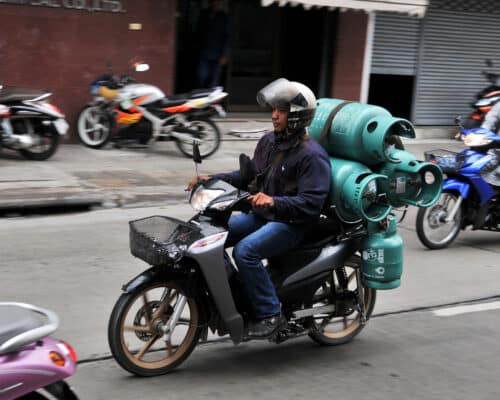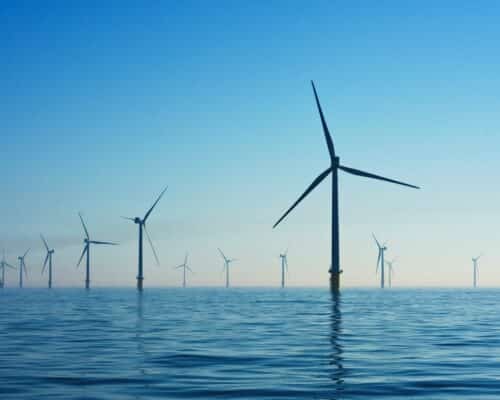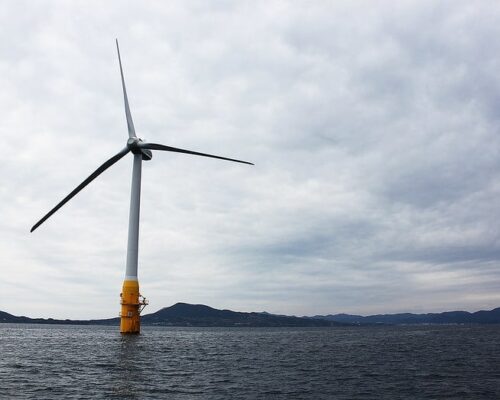Features

Southeast Asia’s New Gas Projects Hit Record High, Report Shows
Southeast Asia is ramping up investment in new natural gas fields. However, this new gas emits even more CO2 emissions when used for the region's power sector. Renewables offer both a cheaper and more environmentally friendly alternative.

Battery Energy Storage Systems Development – ASEAN Members Fall Behind
Battery energy storage systems (BESS) are becoming an integral part of the global push to develop renewable energy sources to rein in carbon emissions from fossil fuel-based power projects. However, the Association of Southeast Asian Nations (ASEAN) bloc is falling behind in technology implementation due to a lack of awareness and policy initiatives.

Environmental Issues Around San Miguel Corporation Deter Investors
In one way or another, SMC is a part of the daily life of many Filipinos and its actions have serious implications. Financiers and investors should be wary of this.
Bangladesh’s Energy Scenario in 2024
As Bangladesh recovers from energy shortages in 2022, there are questions about its energy stability in the coming years. While the country aims to produce 40% of its power from renewable sources by 2040, the current government is negotiating long-term LNG contracts. Without a switch to renewable energy, Bangladesh's energy grid will remain vulnerable to energy disruptions and the associated economic disruption.

Southeast Asia Economy: Waiting for Green Investments
A new report by Bain & Company, GenZero, Standard Chartered and Temasek emphasises the necessity of significant investments to bolster the green energy shift in Southeast Asia. It highlights the inadequate current actions towards this transition and notes the challenge of meeting decarbonisation objectives amid rising energy needs in the region.

The Climate Leadership of the G7 Now Hangs on Japan
Without ensuring that all members share the same views regarding the energy transition, the G7 will have difficulty leading global climate policy. Convincing Japan of the urgency of phasing fossil fuels out and accelerating clean energy adoption is integral before the G20 and COP29 meetings later this year.
Renewable Energy Investments in Vietnam in 2024 – Asia’s Next Clean Energy Powerhouse
The boom of renewable energy in Vietnam has made the country a global leader in sustainability and a top clean energy investment destination.

Renewable Energy in Indonesia – Current State, Opportunities and Challenges
The growth of renewables in Indonesia is soaring. It is no wonder that it is one of Southeast Asia's leading nations in terms of clean energy.

Renewable Energy in Bangladesh – Current Trends and Future Opportunities
Renewable energy in Bangladesh is a sector with vast room for growth. As of 2024,...

The Issue with Japan’s ESG Reporting
Japan has been struggling to catch up with the EU and the US in corporate ESG reporting standards. Progress is being made, but several problems still need to be addressed, including an over-reliance on fossil fuels in its power generation mix and a governance problem that seems hard to address.

Is Steel Bad For The Environment? A Look At Nippon Steel
The vast majority of Japanese steel is produced with coal blast furnaces. This does not align with domestic or international decarbonisation goals. As the market leader of Japan's steel industry, Nippon Steel needs to reassess its decarbonisation strategy. It currently falls short with ongoing coal investments and reliance on untested low-carbon production technology.

Japan’s Offshore Wind Revolution
Surrounded by windy oceans, Japan has tremendous offshore wind potential. For Japan to reach its 2040 offshore wind target, it would need 22,500 wind farms the size of Goto City’s. If the amendments in parliament are passed, Japanese wind manufacturers can export their technology to wind markets abroad. In that case, Japan will have no reason to continue its false solutions of ammonia co-firing and fossil fuel investments.

Japan’s Steel Industry: A Laggard For Decarbonisation
Japan's steel industry is one of the country's largest economic powerhouses, significantly influencing the global steel market. However, the industry's decarbonisation goals fail to align with the country's targets, which are already considered inadequate compared to its peers. A reassessment of the industry's goals and associated policies is necessary.

G7 Ministerial Meetings 2024 – Outcomes
The G7 has sent a clear message that it is moving away from coal. While a good start, the targets are vague and insufficient for a 1.5°C-aligned world. The G20 and COP29 summits and the upcoming NDC updates round provide the perfect opportunities to accelerate progress.
Most Popular
Categories
-
10
-
35
-
126
-
4
-
17
-
46
-
52
-
11
-
10
-
15
-
24
-
6
-
1
-
5
-
6
-
285
-
200
-
17
-
24
-
1
-
1
-
23
-
41
-
44
-
88
-
18
-
86
-
41
-
17
-
11
-
43
-
54
-
86
-
299
-
22
-
44
-
36
-
11
-
42
-
36

